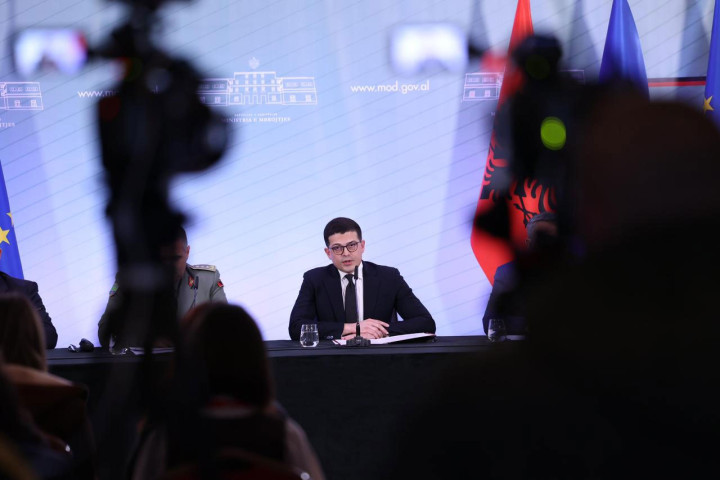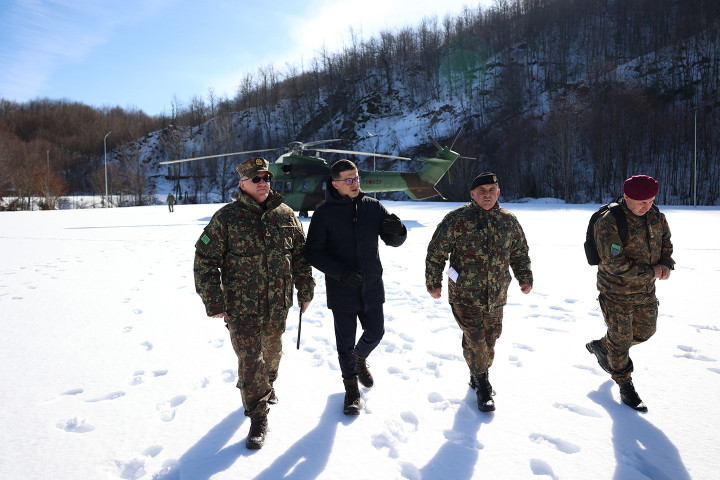Defence Directive 2025
In a constantly changing geopolitical environment, where conventional warfare has returned to Europe, while hybrid threats become increasingly aggressive in our region, the Albanian government will continue to dedicate increasing human and financial resources to the modernization of defense capacities, while also respecting the commitments undertaken in the North Atlantic Alliance.
Throughout 2025, the Armed Forces of the Republic of Albania and all agencies of the Ministry of Defense will continue to increase capacities and readiness across the entire spectrum of combat, as well as strengthen Civil Protection mechanisms.
The Defense Directive 2025 is about creating a more modern, capable and flexible defense system that complies with Albania's obligations in NATO and the EU, as well as contributes to regional and global security.
This directive supports the strengthening of the military instrument in harmony with other instruments of national response capabilities, in accordance with all planning documents, as well as with the strategic goal of revitalizing the military industry in the country.

Human Resources Management Strategy (2020 - 2024) -
The Ministry of Defense's Human Resources Strategy (2020-2024) provides the vision, principles and fundamental concepts for policies, planning and procedures that support the life cycle of human resources for officers, non-commissioned officers, soldiers and civilian personnel in the Armed Forces of the Republic of Albania, the care of their families and for military personnel in reserve, release and retirement. It guarantees strategic direction for defense human resources policies and plans, supports the performance of the national defense mission, the fulfillment of the Ministry of Defense's obligations within the NATO framework, as well as commitments within the EU and the UN for the next five years.
Human Resources Management Strategy (2020 - 2024) (in Albanian)

Cyber Defense Strategy
The speed of change in information and communication technology increases the risk of cyberattacks day by day.
The information systems of the Ministry of Defense and the Armed Forces have not been affected by these attacks so far. The Cyber Defense Strategy has been designed to anticipate and address this challenge, to strengthen our cybersecurity systems, their detection, prevention and immediate response to potential incidents.
Since 2014, the Ministry of Defense has drafted and implemented three Cyber Defense strategies with the aim of a comprehensive approach to the development of military capacities in cyberspace.
The new five-year strategy for 2024 -2028 has the vision has as its vision the guarantee of a secure cyberspace in all activities of the Ministry of Defense and the Armed Forces, through the efficient deployment of cybersecurity capacities, their improvement and development, to consolidate defensive and reactive capabilities, increase awareness, professionalism and strengthen cooperation and coordination with national and international institutions. Investments in the development of cyber capabilities are increasing. Also, the establishment and operation of the Military Cyber Security Unit is the result of recent efforts for further improvement and modernization.
Cyber defense is part of NATO's core task, where the main focus is protecting its own networks (including operations and missions) and increasing resilience across the Alliance, by continuously strengthening its capabilities through cyber education, training and exercises.
The document is an important step towards strengthening Cyber Defense and National Security and includes the vision, goals and objectives to address cyber risks and ensure that our cyber systems in the Ministry of Defense and the Armed Forces are affordable and resilient to today's challenges and is structured in three parts:

Documents on Gender Equality and Equal Opportunities in Albanian Armed Forces
Defined as equality between men and women in all spheres, both public and private, gender equality means equal access to and control over resources and benefits, equal participation in political decision-making, and equality before the law for women and men.
Gender integration, i.e. the process that ensures that the gender perspective and the goal of gender equality to be the focus of all activities - policy development, research, advocacy/dialogue, legislation, resource allocation as well as planning, implementation and monitoring of programs and projects, as a strategy to promote and achieve gender equality, should be part of all social, economic and political policies in Albania. Such a strategy not only ensures the achievement of sustainable development through the utilization of the full human potential of the country, but also guarantees that all social groups enjoy these achievements.
Gender Equality and Equal Opportunities in PDF

Articles from Newsroom
Monday, 26 January 2026



Defence Minister Vengu hosts Belgian counterpart: Cooperation to strengthen our capabilities
Tuesday, 20 January 2026
Albanian Air force trains with the U.S. Air Force, focusing on rapid crisis response
Monday, 19 January 2026